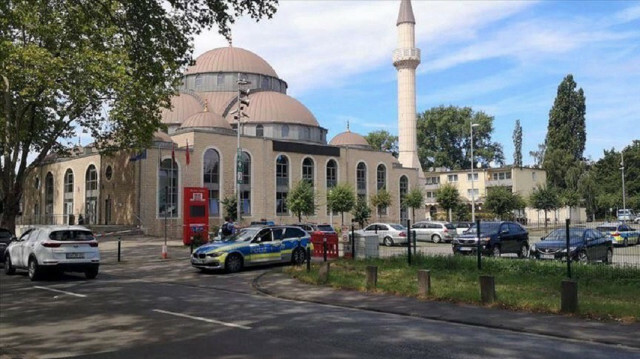
More than 800 mosques in Germany have been the targets of threats and attacks since 2014, but in most of the cases, the crimes were not properly investigated, according to Brandeilig, an initiative of rights group FAIR International.
The group, which has founded Germany’s first reporting center for attacks on mosques, recorded nearly 840 incidents of attacks, vandalism and threats between 2014 and 2022.
A detailed analysis of the crimes in 2018 revealed that the perpetrators remained unidentified in most of the attacks, fueling further attacks against Muslim worship sites by neo-Nazis or left-wing extremists.
Among the 120 attacks recorded against mosques in 2018, only in nine cases perpetrators could be identified.
“This rate is a cause for concern,” Brandeilig’s experts stressed, pointing out that in at least 20 cases, which included arson attacks, suspects intended to cause death or great bodily harm.
“In general, the police officers arrived on the scene very quickly and immediately started the investigation. Nevertheless, almost none of the incidents could be solved until today,” the experts said.
- ‘First, current danger to Muslims should be accepted by German authorities’
Sociologist and political scientist Yusuf Sari told Anadolu Agency: “In our opinion, one of the most important findings is that the mosque communities did not inform about this even though they had been attacked many times before.”
“Additionally, half of the attacks are from the far right, and in most cases the perpetrators have not been caught.
“This means that the perpetrators still pose a threat to Muslims,” he said.
“It is also important to note that communities are often left alone after an attack and receive no help, both spiritual and material,” Sari noted.
He made suggestions for solutions to the problems mentioned in the report and explained his expectations from the German authorities: "As a first step, the current danger to Muslims should be accepted.”
“In general, we expect the authorities to do more in the fight against anti-Muslim racism. Solidarity with Muslim communities should increase, and mosque communities should be supported, including financial support, after an attack.
“But one of the most important points is the elucidation of cases and the capture of the perpetrators, otherwise this would be an incentive for the perpetrators," he said.
“We, of course, recorded the updated numbers and attacks,” Sari said, adding that they observe an increase in the number of attacks against mosques and Muslims.
- Need for change
“The presence of a very small number of suspects is alarming,” he pointed out, mentioning that it was surprising that German authorities have captured a very small number of perpetrators to date.
“Something needs to change, especially at this point, if we want to tackle far-right and prevent people from being seriously harmed in the future,” he stated.
“Attacks on mosques should not be underestimated under any circumstances,” he added.
“We hope that we have made a small contribution to the issue of anti-Muslim racism with our report.
“We wish to increase solidarity with the mosque communities and we hope that the attacks against Muslims in Germany will decrease,” Sari said.
Left-wing extremists and followers of the YPG/PKK terror group were behind several attacks targeting mosques, while majority of them were committed by right-wing extremists or neo-Nazi groups, according to the report.
Germany, a country of over 83 million people, has the second-largest Muslim population in Western Europe after France. Among the country’s nearly 5.3 million Muslims, 3 million are of Turkish origin.













